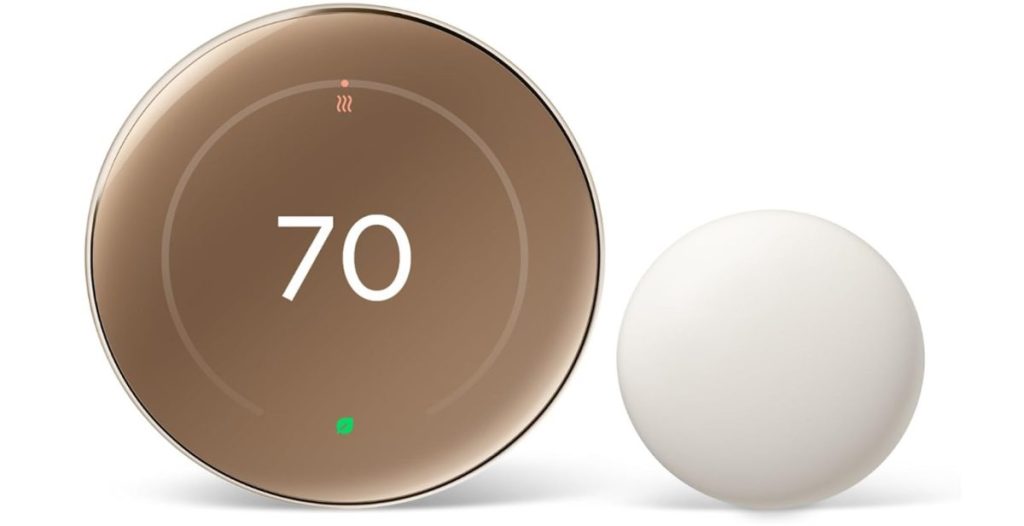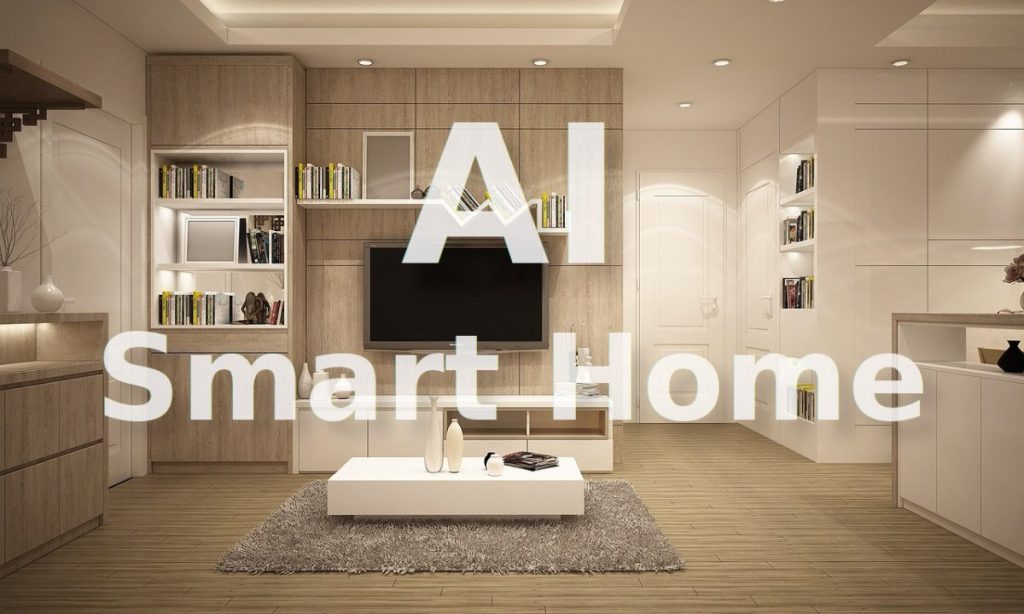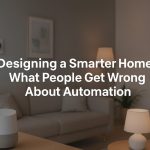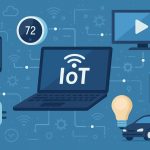Smart homes are no longer just about convenience—they’re about intelligence. With artificial intelligence (AI) integrated into smart home systems, homes are becoming more responsive, adaptive, and personalized than ever before.
What Is AI in Smart Homes?
Artificial intelligence in smart homes refers to the use of algorithms and machine learning to automate tasks, predict behaviors, and improve decision-making across devices like lights, thermostats, security systems, and more.
Unlike basic automation (like setting a timer for your lights), AI systems learn from your routines, analyze patterns, and adapt to your lifestyle.
Key Ways AI Enhances Smart Homes
1. Predictive Automation
AI-enabled systems can anticipate your needs. For example:
- Your thermostat learns when you typically arrive home and adjusts the temperature beforehand.
- Your coffee machine starts brewing just as your morning alarm goes off.
2. Voice and Gesture Control
AI powers more accurate voice assistants (like Alexa, Siri, and Google Assistant) that understand natural language and even context. Some systems now include gesture recognition for hands-free control.
3. Energy Optimization
AI analyzes usage data to reduce energy waste. It might:
- Suggest optimal appliance settings.
- Turn off unused devices automatically.
- Optimize solar battery storage based on your patterns.
4. Security and Surveillance
AI-powered cameras use facial recognition, object detection, and behavioral analytics. This enables:
- Real-time alerts for suspicious activity.
- Smart doorbells that recognize familiar faces.
- AI distinguishing between pets and humans to reduce false alarms.
5. Personalized Experiences
AI can adjust lighting, music, and content recommendations based on who’s in the room and their past preferences.
Real-World Examples

- Nest Learning Thermostat: Learns your temperature preferences and optimizes energy usage.
- Ring Video Doorbell: Uses AI to distinguish between people, animals, and packages.
- Eufy Security Cameras: Use AI to track movements and reduce false positives.
The Future of AI in Smart Homes
We’re just scratching the surface. Expect developments like:
- Emotion-sensing environments (adjusting ambiance based on your mood).
- Cross-device intelligence that syncs all appliances seamlessly.
- Fully autonomous smart homes with minimal manual input.
Frequently Asked Questions
What’s the difference between AI and automation in smart homes?
Automation follows pre-set rules, while AI learns from data and adapts without explicit programming.
Is AI in smart homes safe?
Most modern systems use encryption and multi-factor authentication, but users should stay updated with patches and best security practices.
Do I need a hub for AI-based smart home systems?
Not always. Many AI-powered devices are cloud-based or operate through smartphone apps without a central hub.
Final Thought
AI is transforming smart homes into living, learning environments that respond to you intuitively. As technology advances, expect your home to not just be smart—but truly intelligent.
- Designing a Smarter Home in 2026: What People Get Wrong About Automation
 Smart homes were once science fiction, but today they’re a reality in millions of households. With voice assistants, smart plugs, and automated lighting systems, it’s easy to assume home automation is simply a matter of plugging in a few devices. Yet, many homeowners quickly discover that “smart” doesn’t always mean simple. In this article, we’ll…
Smart homes were once science fiction, but today they’re a reality in millions of households. With voice assistants, smart plugs, and automated lighting systems, it’s easy to assume home automation is simply a matter of plugging in a few devices. Yet, many homeowners quickly discover that “smart” doesn’t always mean simple. In this article, we’ll… - The Smart Home Revolution in 2025: How IoT is Transforming Everyday Living
 In the past decade, the vision of a truly smart home has moved from futuristic fantasy to everyday reality. As we step into 2025, the Internet of Things (IoT) has matured into a robust ecosystem, connecting appliances, security systems, lighting, and even entertainment devices under one seamless digital roof. The result? Homes that are safer,…
In the past decade, the vision of a truly smart home has moved from futuristic fantasy to everyday reality. As we step into 2025, the Internet of Things (IoT) has matured into a robust ecosystem, connecting appliances, security systems, lighting, and even entertainment devices under one seamless digital roof. The result? Homes that are safer,… - Geofencing in Smart Homes: Automating Your Life Based on Location
 Imagine pulling into your driveway after a long day—your porch lights switch on, the thermostat adjusts to the perfect temperature, and your door unlocks automatically. This isn’t science fiction—it’s geofencing, one of the most powerful yet underused tools in smart home automation. What Is Geofencing? Geofencing creates a virtual boundary around a physical location—such as…
Imagine pulling into your driveway after a long day—your porch lights switch on, the thermostat adjusts to the perfect temperature, and your door unlocks automatically. This isn’t science fiction—it’s geofencing, one of the most powerful yet underused tools in smart home automation. What Is Geofencing? Geofencing creates a virtual boundary around a physical location—such as…
OpenDAN: Your Personal Open-Source AI Operating System







